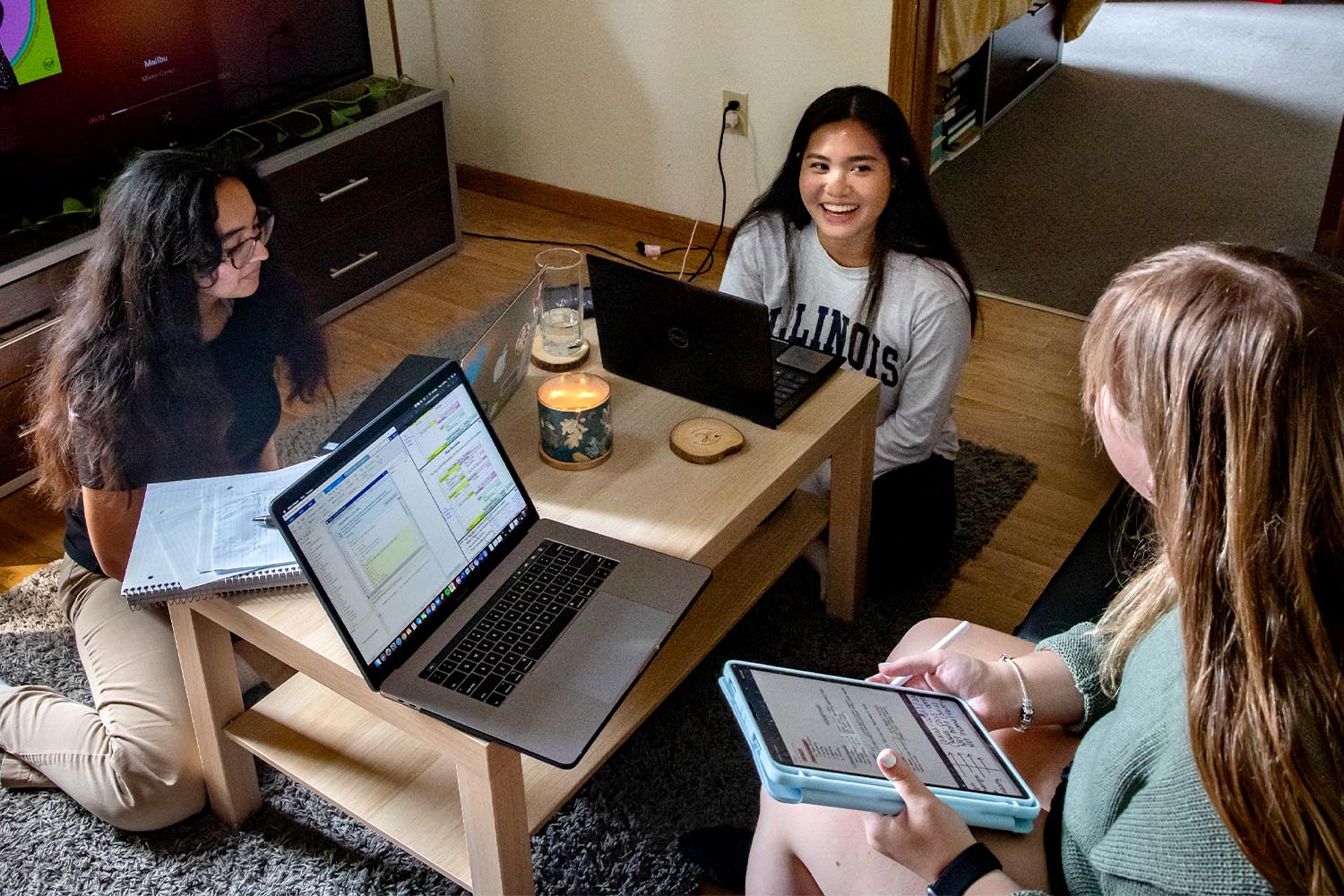Did you know that in some major cities, international students spend more on housing than they do on tuition? It’s a startling reality that’s reshaping the student experience worldwide. Finding affordable housing as an international student can feel like solving a complex puzzle without all the pieces.
But here’s the good news – from creative co-living arrangements to university-backed initiatives, there are more housing options available today than ever before. Whether you’re looking to immerse yourself in campus life or seeking an authentic cultural experience with a host family, let’s explore how you can find your perfect home away from home without breaking the bank.
Finding Housing as an International Student
Finding housing is one of the biggest hurdles you’ll face as an international student, especially in major cities. In places like California, you might end up paying more for rent than tuition at public universities.
Without local knowledge or credit history in your new country, the search can feel overwhelming. Some students have gotten creative – from sharing rooms to living in alternative spaces. Universities are stepping up, too, testing new options like University Housing to help students find places to live.
On-Campus Housing: A Smart Starting Point
Living in on-campus housing puts you right in the middle of campus life. You’ll be steps away from your classes, libraries, and dining halls. Most dorms include utilities, internet, and basic furniture in your fees.
If you’re weighing the pros and cons, this guide on whether it’s cheaper to live off-campus or in a dorm breaks down the key cost factors and living considerations.
At private colleges, you’ll typically pay around $12,210 yearly, while state schools like Missouri State charge about $8,755. Some schools, like Stanford, house nearly all their students on campus, making it easier to find a place to live.
Looking Off Campus? Here’s What to Know
Looking to live off campus? You’ll find some good deals if you know where to look. In smaller college towns like Springfield, Missouri, you can rent a one-bedroom apartment for about $556 – that’s nearly 30% below the national average.
Even better deals pop up in places like Emporia, Kansas, where monthly rent runs around $265. To keep costs down, look for apartments a bit further from campus, but make sure you’re near public transportation. Shared Housing Communities can also help reduce costs while building community connections.
Sharing Space: Smart Living for Students

Splitting rent and bills with roommates is often the most practical way to make housing work on a student budget. You’ll get more for your money – like a bigger living space or a better location – when you team up with others.
Many universities offer matching services to help you find the right roommates, and some even have cooperative housing where you can connect with people who share your living style and schedule.
Student Housing Cooperatives
Looking to share costs and build community? Student housing co-ops let you team up with other students to own and run your living space together.
You’ll typically pay less than standard rentals since there’s no landlord taking a profit. Plus, you’ll share kitchen duties, maintenance tasks, and common areas with your housemates. Many big universities have housing right near campus – check with your school’s housing office to find options.
Homestays and Host Families
Want to really connect with local culture while saving money? Living with a host family might be perfect for you. You’ll get a furnished room, and many families include meals in their rates.
Plus, you’ll pick up local language skills and customs naturally through daily interactions. Many universities partner with local families to offer safe, vetted homestay options – just check with your international student office to get started.
Subletting Opportunities
Need a short-term place to stay? Subletting could be your answer. Many college students leave their apartments during summer breaks or internships, making these spots perfect for international students who need temporary housing.
You’ll find lots of month-to-month options in cities like NYC and Austin. Just check with your landlord first – some buildings have rules about subletting. Keep an eye on your university’s housing board for student-to-student sublet listings.
Housing Requirements for Different Cultural Backgrounds
Your cultural background plays a big part in what you need from your student housing. Many students want a kitchen where they can cook familiar foods from home. Some need specific spaces for daily prayer or religious practices.
When it comes to sharing rooms, comfort levels vary – you might prefer your own bedroom while others are happy to share. Think about what matters most to you before picking your housing.
Location Considerations
Want to live close to campus? You’ll pay more in rent, but you’ll save time and money on transportation. Plus, you won’t need to wake up super early for those 8 AM classes!
Living further out costs less, but make sure you check the bus and train routes first. The sweet spot? Look for neighborhoods where you can walk to grocery stores, cafes, and other daily needs.
Furnished vs. Unfurnished Options

Should you pick a place with furniture or start from scratch? Furnished apartments cost more monthly, but save you from buying big items up front.
This can be a big help if you’re only staying for a year or two. Without furniture, you’ll pay less rent but need to buy basics like a bed and desk. However, if you decide to rent an unfurnished apartment, you’ll need to invest in essential items to make the space livable. Adding a teak wood display cabinet can provide both storage and style in your living area. This type of piece can be especially useful for students who want durability without sacrificing aesthetics. Think about how long you’ll stay and if you can sell or move furniture later.
Temporary Housing Solutions
Need a place to stay while hunting for your permanent home? Many universities offer short-term rooms during orientation week. You’ll also find extended-stay hotels and hostels near campus, though they can be pricey for long stays.
Some schools team up with local hotels to give student rates, making your transition smoother. Ask your student office about temporary options – they often keep lists of safe, student-friendly places to stay.
Resources for Finding Affordable Housing
Your university’s housing office should be your first stop when looking for a place to live. They keep lists of approved rentals, know the local market, and can tell you what prices to expect. Many schools have special teams to help international students find housing that fits their budget and needs.
Want to search online? Try websites like 4stay, Student.com, and HousingAnywhere – they’re built just for students like you. Most list prices, photos, and details about what’s included, making it easier to compare options before you visit.
Budgeting Tips for Housing Expenses

Planning your housing budget as a student? Start by listing all your costs – not just rent, but also electricity, water, internet, and heating. Think about getting renters’ insurance too.
Try looking for places that include utilities in the rent. While they might cost more upfront, you’ll know exactly what you’re paying each month. If you pay utilities separately, you can save money by being careful with energy use, but your bills might change month to month.
Remember to set aside some money for unexpected costs like repairs or deposits. A good rule? Keep at least one month’s rent as a safety net.
Navigating Lease Terms
Reading rental agreements can feel like learning a new language, especially when you’re new to the country. Here’s what you need to watch for: how long the lease runs, what you’ll pay for security deposits, and whether you can sublet if needed.
Many college cities now offer month-to-month rentals that work better with school schedules. You’ll find these flexible options in Boston, San Francisco, and Austin, making it easier to match your housing with your study plans.
Housing Trends and Changes for International Students
Despite fewer students going to college overall, top schools are getting more applications than ever – and that means more students looking for places to live. This hits international students especially hard since they’re competing in already tight housing markets.
Schools are getting creative to help students find homes. Some are buying buildings, while others are turning old hotels into student housing. These new options give you more choices when looking for your perfect student home.
Making Your Housing Journey Successful
Finding the right housing as an international student might seem daunting at first, but remember – millions of students before you have successfully navigated this challenge. The key is to start your search early, stay flexible with your options, and take advantage of the resources your university offers. Don’t be afraid to think outside the traditional housing box!
Your housing choice will shape your study abroad experience in meaningful ways, from the friends you’ll make to the money you’ll save. By carefully considering the options we’ve discussed – from on-campus dorms to cooperative housing – you can find a living situation that supports both your educational goals and your budget.


